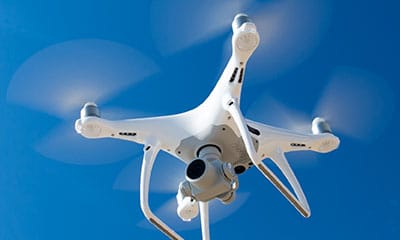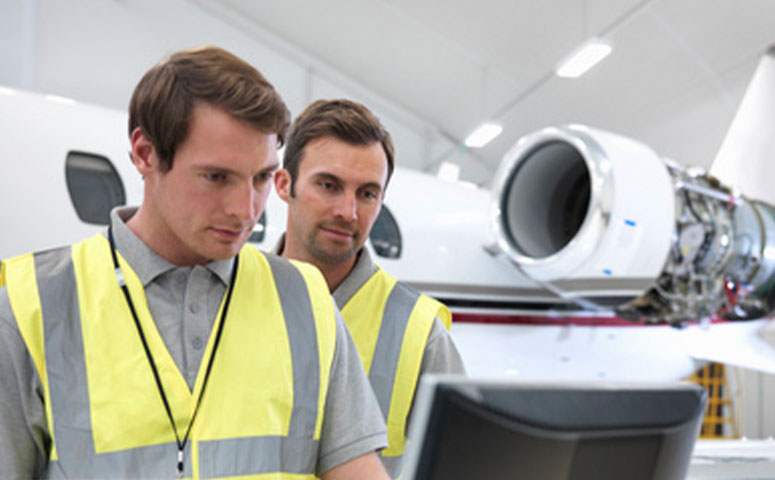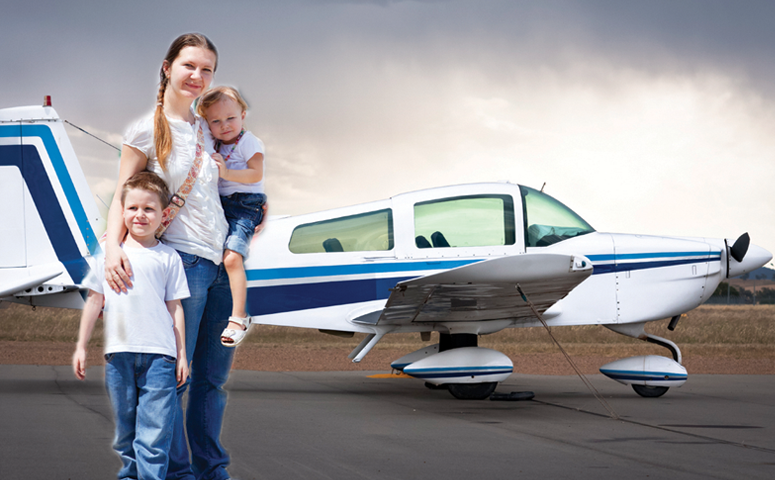CORSIA is Coming: Information on the Carbon Offsetting Initiative
If you are not familiar with the details of the Carbon Offsetting and Reduction Scheme for International Aviation (CORSIA), you soon will be. This global initiative was agreed by the International Civil Aviation Organization (ICAO) in 2016. Its goal is to monitor the CO2 emissions produced by international aviation and to achieve carbon neutral growth from 2020, by use of carbon credit offsets. It is a plan that is as ambitious in its scope as it is aggressive in its timeline.
Operators that are affected by the initiative are expected to begin monitoring their CO2 emissions in less than a year — on January 1, 2019 to be exact. Consequently, it is imperative that they learn what will be required of them so that they can make a plan for allocating the resources needed to meet their monitoring and reporting obligations.

Aviation’s Impact on the Environment
The aviation industry is fortunate to have many thought leaders in the area of environmental awareness and protection. Aircraft and engine manufacturers, fuel producers, operators, and others are continually working to improve efficiencies in areas covering everything from aerodynamics to chemistry to route planning in order to lessen aviation’s impact on the planet. The challenge is daunting, since the industry produces a significant amount of CO2 through its operations:
- Aircraft are estimated to contribute 3.5 percent of the total radiative forcing (the change in energy in the atmosphere due to greenhouse gas emissions) by all human activities.
- Civil aviation accounts for around 2 percent of global CO2 emissions.
- CO2 emissions from aviation are expected to grow approximately 3-4 percent per annum.
So, while the industry’s efforts to date are laudable and valuable, they are not enough to ensure carbon neutral growth.
ICAO and CORSIA
In October 2016, 191 member states of ICAO agreed on CORSIA at the 39th Assembly Session, held in Montreal. The carbon offsetting initiative works on a three-year compliance cycle and requires that an operator that exceeds 2020 CO2 emission levels purchase credits from industries and projects that limit greenhouse gas emissions.
The CORSIA carbon reduction plan will be implemented in three phases:
| Phase | Period | Member States Participating |
|---|---|---|
| Pilot Phase | 2021-2023 | States that have volunteered |
| First Phase | 2024-2026 | States that have volunteered |
| Second Phase | 2027-2029 | All member states whose market share of international aviation exceeds 0.5% |
| 2030-2032 | ||
| 2033-2035 |
How Offsetting Requirements Under CORSIA Are Met
After the calculation of the offsetting requirements to be attributed to an aircraft operator:
- The operator reports the use of sustainable aviation fuels for the compliance period.
- The State deducts the benefits from the use of sustainable aviation fuels and informs the operator’s final offsetting requirements for the 3-year compliance period.
- The operator purchases and cancels eligible emissions units equivalent to its final offsetting requirements for the compliance period.
- The operator provides a validated Emissions Units Cancellation Report to the State, who checks the Report and informs ICAO.
Does CORSIA Apply to You?
From 2019, all 192 ICAO member states with aircraft operators conducting international flights are required to monitor, report and verify (MRV) CO2 emissions from these flights every year from 2019, regardless of their participation or otherwise in the voluntary phases of CORSIA.
As of January 2018, 73 member states representing approximately 88 percent of international aviation activity intend to participate in the voluntary phase of CORSIA beginning in 2021. Notably, this group includes the United States, all 28 European Union member states, Canada, Australia, China, and the United Arab Emirates.
By 2027 participation in CORSIA is mandatory for operators in all ICAO states. However, the CORSIA carbon offsetting program will not apply to small island or landlocked developing countries unless that state volunteers to participate. There are certain other exemptions, including:
- Operators with annual CO2 emissions less than 10,000 metric tons
- Certain aviation activities such as humanitarian efforts, medical flights, and firefighting
- Aircraft with a Maximum Take Off Weight of 5,700 kg or less
Operator Obligations
While operator obligations under CORSIA are not complex, they will require a commitment of resources. Operators must:
- Estimate their CO2 emissions on the basis of fuel consumption
- Calculate CO2 emissions
- Declare CO2 emissions to ICAO
- Depending on the growth factor determined by ICAO, calculate the tons of CO2 emissions to be offset
- Buy carbon credits to offset the growth in CO2 emissions
- Be ready to begin monitoring their CO2 emissions on January 1, 2019
To help operators track emissions, ICAO is developing a free CO2 Estimation and Reporting Tool (CERT). Operators will be able to enter their flight details and receive data on the total fuel burn per year based on arrival and departure airports in CORSIA-participating states, great circle routes and time aloft.
In addition, ICAO will be holding a seminar on Carbon Markets in Montréal, 7th-9th February 2018. The aim is to enhance understanding of carbon markets and emissions units, including the criteria for eligible emissions units, as well as sharing information on various aspects of emissions units programs, mechanisms and projects, which are of interest for the implementation of the CORSIA.
Global Aerospace and CORSIA
As a result of reducing carbon emissions, CORSIA is expected to have other positive impacts as well. For example, a significant source of risk in aviation is the problem of clear-air turbulence, which increases as CO2 levels rise (Global Response of Clear-Air Turbulence to Climate Change). As CORSIA takes effect and aviation reaches net neutral carbon growth, a tangential but very real and important result will likely be a reduction in injuries, deaths, and property damage associated with this threat.
Global Aerospace is working actively and diligently to understand all aspects of the CORSIA initiative and its impact on our clients and aviation in general. In addition to information available directly from ICAO, we plan to be a resource for our clients as they seek to learn what is required of them and how to prepare for implementation of the carbon offsetting program.
To find out about our aerospace and aviation insurance offerings, please contact the Global Aerospace office in your region. To talk with us about CORSIA, please email Reece Vowles at your convenience.




